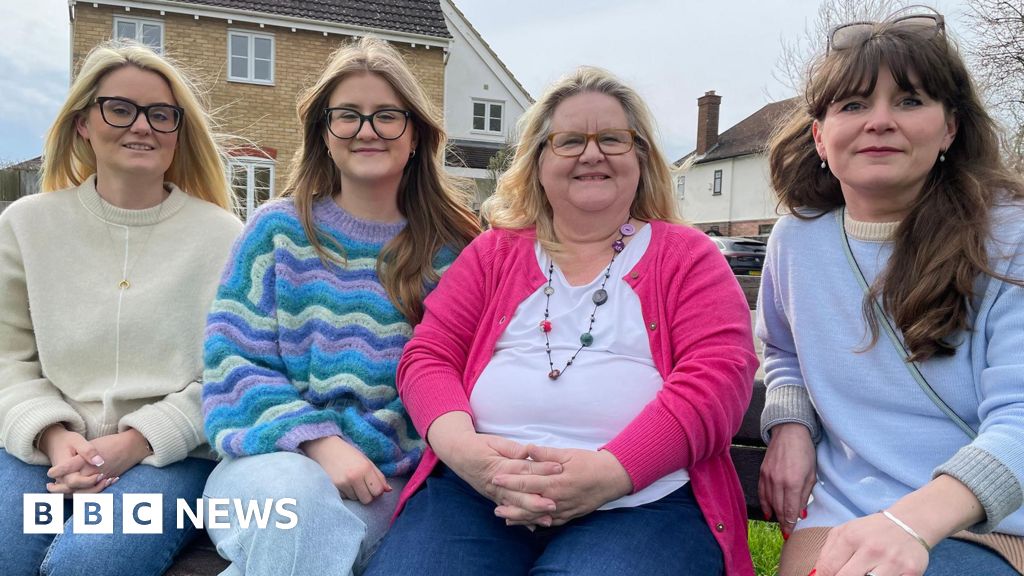A new treatment approach can significantly improve survival rates for patients with aggressive, inherited breast cancer, a study suggests.
The trial, led by Addenbrookes Hospital in Cambridge, and published in Nature Communications, involved women with early-stage breast cancer who have inherited BRCA1 or BRCA2 gene mutations.
Giving them the targeted drug olaparib before surgery greatly reduced the chances of the cancer coming back.
More than 1,200 patients a year in the UK could benefit from the change in practice if a larger clinical trial can confirm the findings.
Jackie Van Bochoven, 59, from Cambridgeshire, has a family history of breast cancer and carries a faulty copy of the BRCA1 gene, which significantly raises her risk of the disease during her lifetime.
She was diagnosed with an aggressive breast tumour in 2019 and took part in the trial.
“When I had the diagnosis I was completely shocked,” she told BBC News.
“Six years on, I’m well and cancer free. It’s amazing.”
Jackie’s mother and sister both had breast cancer. She has three daughters and the eldest, Danielle, also carries the inherited BRCA gene mutation.
“For my future generations, if they have got the BRCA gene, it is a new hope,” Jackie said.
Around one in 400 people carry mutations in either the BRCA1 or BRCA2 genes.
Cancer Research UK estimates about seven in 10 women with changes in these genes will develop breast cancer, compared to about one in seven women without these mutations.
For men with BRCA mutations, the risks of developing breast cancer are much lower.
Olaparib is the first targeted drug treatment for cancers with mutations in the BRCA genes and is given as a tablet. It works by stopping cancer cells from being able to repair their DNA by blocking a protein called PARP, which causes the cancerous cells to die.
The trial, named Partner, took place at 23 sites in England, Scotland and Wales. Before surgery, 39 women with early stage breast cancer were given olaparib, also known as Lynparza, together with chemotherapy.
They started olaparib tablets 48 hours after each chemotherapy infusion. After three years, all had survived.
By contrast there were six deaths among 45 women in the study who received chemotherapy before surgery but did not get olaparib.
Prof, Jean Abraham, a consultant at Addenbrookes and professor of precision breast cancer medicine at the University of Cambridge, who led the trial, described the results as were “really exciting”.
“It is rare that you see 100% survival at 36 months for this subtype of breast cancer. We’re incredibly excited about the potential of this new approach.”
The findings have the potential to be applied to other BRCA-related cancers, such as ovarian, prostate and pancreatic.”
Prof Abraham said a larger, multinational trial is planned next year, involving some 600 patients. She predicted that if the findings are repeated, it will lead to a major change in clinical practice for more than 1,200 patients a year in the UK.
Currently patients are given olaparib for a year after surgery, whereas on the trial patients took the tablets over 12 weeks pre-surgery, and at half the dose.
Prof Abraham said: “From a cost perspective, it would save the NHS a considerable amount of money because it’s a fraction of the time and dose of the drug.”
Michelle Mitchell, chief executive of Cancer Research UK, said: “While this research is still in its infancy, it is an exciting discovery that adding olaparib at a carefully-timed stage of treatment can potentially give patients with this specific type of breast cancer more time with their loved ones.”
